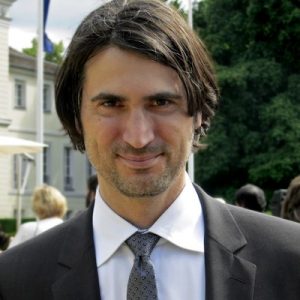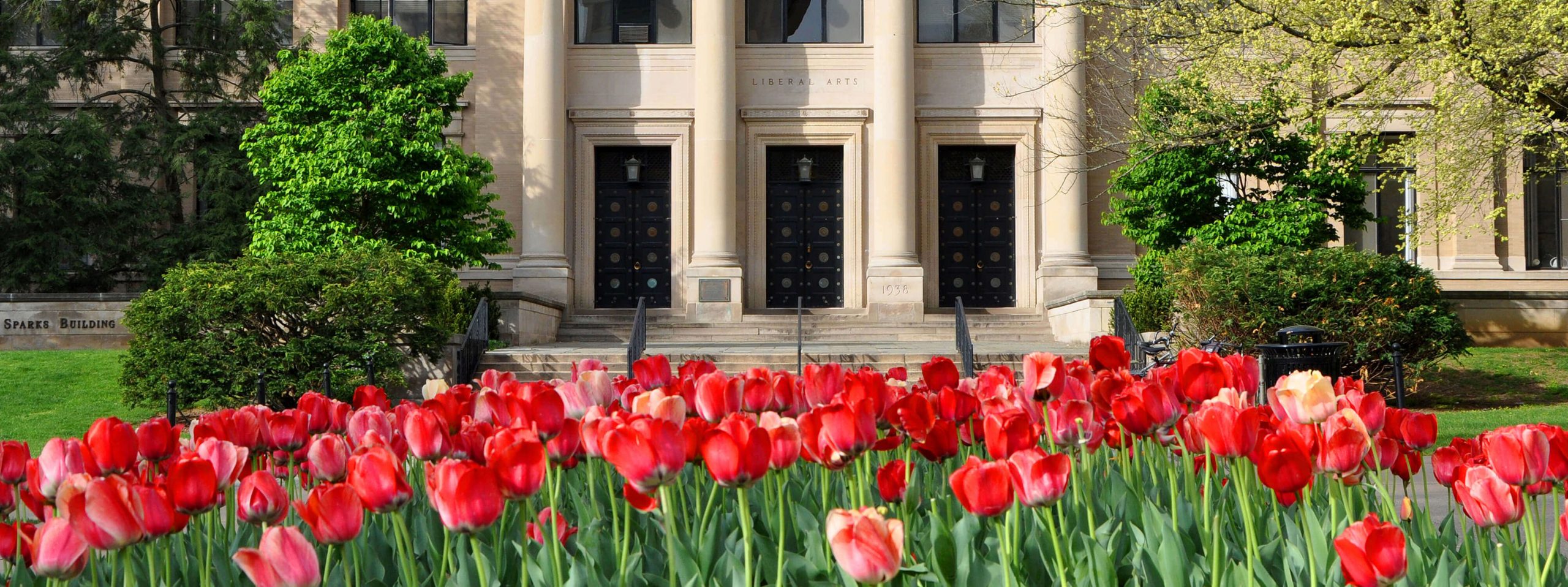Education
Professional Bio
I began my career in Germany. After receiving a first degree in philosophy and modern German literature at the Freie Universität Berlin, I went on to earn my doctorate in philosophy at the same institution, defending my dissertation in 2001. From 2000–2007 I was part of a DFG-funded collaborative research center (Sonderforschungsbereich “Ereignis Weimar-Jena: Kultur um 1800”) at the Friedrich Schiller Universität Jena. I joined the Penn State faculty in 2007. My area of specialization is classical German philosophy — mostly Hegel, but I have also published on the period’s other major figures (especially Jacobi and Schelling) as well as some of its minor ones. Relevant early modern authors (Descartes, Spinoza) are also a focus of interest. Current projects include a study of Hegel’s lectures on the science of logic (1817–1831) and a new translation of Fichte’s Guide to the Blessed Life. I am vice-president of the International Hegel Society and co-editor (with Birgit Sandkaulen) of the journal Hegel-Studien.
Areas of Specialization
- Classical German philosophy
- History of modern and 19th century philosophy
Recent Courses
- The Concept of Recognition in Classical German Philosophy and Some Contemporary Thought
- The Philosophy of F.W.J. Schelling
- The Philosophy of Spinoza
- Hegel’s Phenomenology of Spirit
- Moral Epistemology
- Modern Philosophy (Bacon to Kant)
- Introduction to Theories of Knowledge
Selected Publications
- Hegel and the Metaphysics of Absolute Negativity, Cambridge: Cambridge University Press, 2013.
- “Jacobi on Mind and Intuitive Certainty,” in Alexander Hampton (ed.), Friedrich Heinrich Jacobi and the End of the Enlightenment: Religion, Philosophy, and Reason at the Crux of Modernity (Cambridge University Press, 2023).
- “The Vocation of Philosophy: Hegel on ‘Speculative’ Science and the Human Good,” in Anne Pollok, Courtney D. Fugate (eds.), The Human Vocation in German Philosophy: Critical Essays and 18th Century Sources. Bloomsbury Studies in Early German Philosophy, Vol. 1 (London: Bloomsbury, 2023), 295–316.
- “The World Soul in German Idealism: Organic Life, Human Freedom, and the Unity of Nature,” in James Wilberding (ed.), The World-Soul: The History of a Concept (in the series “Oxford Philosophical Concepts”), Oxford University Press, 2021. 258–83.
- “Die Wirklichkeit des Wahren. Gewissheit und Glauben bei Jacobi und Kant“, in Birgit Sandkaulen, Walter Jaeschke (eds.), Jacobi und Kant, Hamburg: Felix Meiner Verlag, 2021. 25–43.
- “Schelling on Eternal Choice and the Temporal Order of Nature,” in Anthony Bruno (ed.), Freedom, Nature, and Systematicity: Essays on F.W.J. Schelling (Oxford University Press, 2020), 115–37.
- “Spontaneität, Geschöpflichkeit, Unendlichkeit. Zu den Vorbedingungen des Cogito in Descartes’ Meditationen”, in Oliver Koch, Johannes-Georg Schülein (eds.), Subjekt und Person. Beiträge zu einem Schlüsselproblem der klassischen deutschen Philosophie (= Hegel-Studien, Beiheft 68 [2019]), 41–61.
- “Hegel on Socrates and the Historical Advent of Moral Self-Consciousness,” in Christopher Moore (ed.), The Brill Companion to the Reception of Socrates (Leiden: Brill, 2019), 748–790.
- On the Relation of Hegel’s Science of Logic to the Phenomenology of Spirit in the Version of 1807: An Overview (German: Zum Verhältnis von Hegels Wissenschaft der Logik zur Phänomenologie des Geistes in der Gestalt von 1807: Ein Überblick). In Michael Quante, Nadine Mooren (Eds.), Kommentar zu Hegels Wissenschaft der Logik (Hamburg: Felix Meiner, 2018), 1–42.
- “Force, Existence, and the Transcendence of the Good in Schelling’s Weltalter (1815),” in Sally Sedgwick, Dina Emunds (eds.), Internationales Jahrbuch für Deutschen Idealismus, vol. 14 (2018): 265–293
- “Autonomy, Negativity, and the Challenge of Spinozism in Hegel’s Science of Logic”, in Journal of the History of Philosophy 56 (1) [2018]: 101–126.
- “Ideality and Self-Determination in Hegel’s Logic of Being”, in Dean Moyar (ed.), The Oxford Handbook of Hegel (Oxford University Press, 2017), 219–241.
- “Labor, Publicity, and Bureaucracy: The Modernity of Hegel’s Civic Humanism,” in Hegel-Studien 47 [2014]: 41–73.
- “Acosmism, Radical Finitude, and Divine Love in Mendelssohn, Schelling, and Hegel,” in The Owl of Minerva, 45(1–2) [2014]: 61–83.
- “Spinozist Pantheism and the Truth of ‘Sense Certainty’. What the Eleusinian Mysteries have to tell us about Hegel’s Phenomenology”, in Journal for the History of Philosophy 50 (1): 85–110. [Recipient of the Journal of the History of Philosophy Article Prize 2012]
- “A Conceptualist Reply to Hanna’s Kantian Non-Conceptualism”, International Journal of Philosophical Studies 19 (3): 417–446. Reprinted in Dietmar Heidemann (ed.), Kant and Non-Conceptual Content (Oxford: Routledge 2012)


